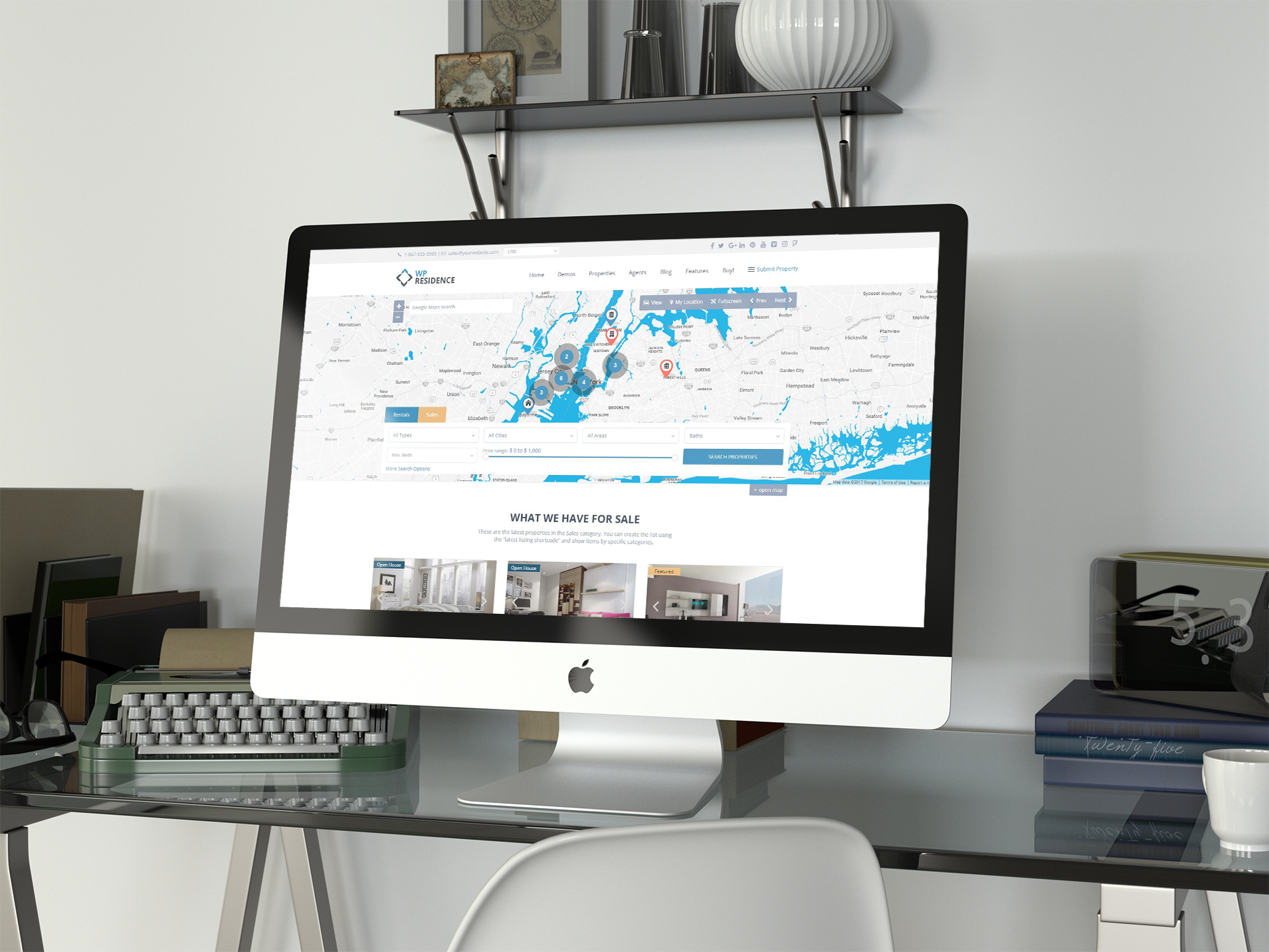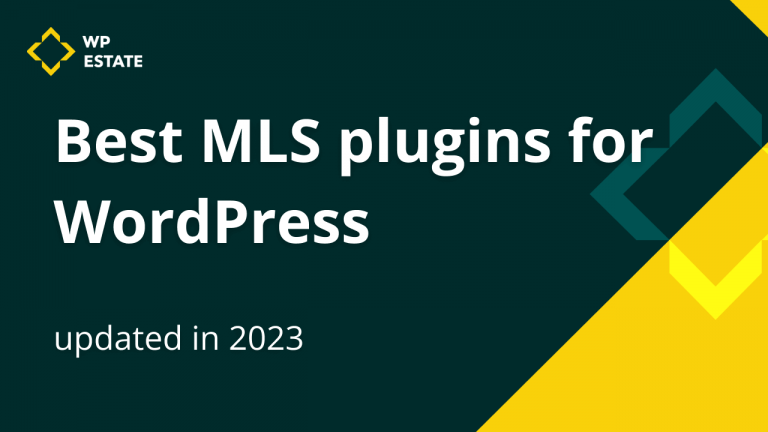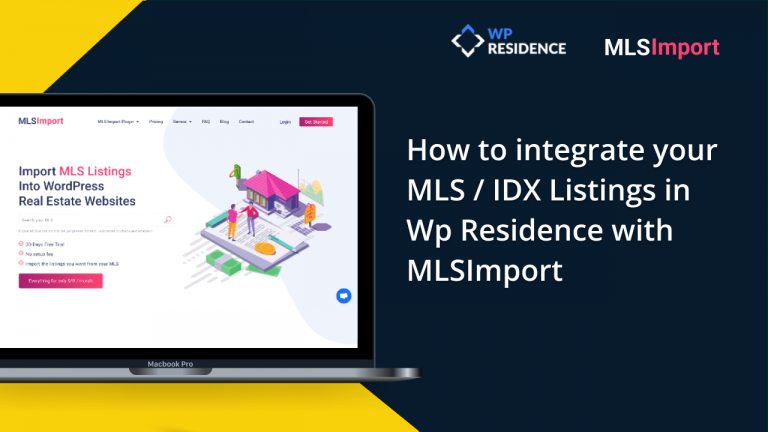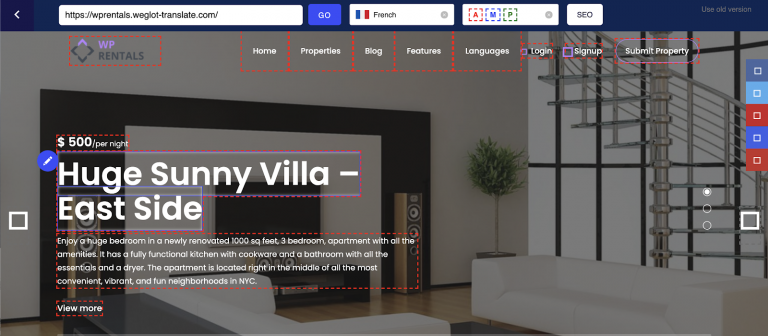How do you go from an average real estate website to a great one? In the following article, we will go through the necessary steps to create an impressive online experience for your customers and a significant extension of your business.
This might be overlooked or taken lightly, but the truth is that more home buyers are turning to the web meaning real estate websites are becoming a vital tool for the industry.
Whether you are an individual agent or a real estate agency, your website is the leading source for market information, for finding and communicating with clients and a platform for buying and renting properties.
1.Your website is your online business card
If you don’t have a site yet, consider acquiring a memorable domain name in your line of business. This ensures you find the right clients and build a strong reputation.
A successful real estate website design provides a solid user experience and converts leads. It also goes beyond basics like fonts and color schemes. If this is out of your expertise, consider getting a templated site you can easily modify and update or have it edited by an expert design firm.
In this case, choose the one designer that can offer you more than just a standard website. A great web design professional will cover all your needs and provide new ideas to boost your online presence.
2.Offer users a visual feast
For home buying or renting purposes, going on a home inspection is a huge part of the deal. This is also true for your website visitors. Quality images and videos are a powerful tool able to capture attention and make your online presence more engaging.
Forget random stock footage and try investing in professional photography and videography, in order to create an authentic brand identity and trustworthy reputation.
Good visuals improve readability of a webpage, convey ideal residential scenarios and encourage visitors to continue to engage with your site.
This should also include home tour videos, property maps, floor plans, etc.
3.Information is key to success
While your website visuals keep users entertained, good copy anticipates user needs and communicates essential and useful information.
Your website will become a 24/7 communication line between you and your client, so it’s important you spend the time and effort to update your real estate website regularly.
A significant credibility source is the Q&A section on your website. Take the time to answer the most frequently-asked questions about real estate. This is an excellent opportunity to share your knowledge with existing and future clients establishing trust and positioning you as an expert.
Another right way to establish yourself as an expert is blogging about a range of real estate related topics. Consider offering relevant, easy-to-follow written content to increase your search engine rankings, which means more visits to your website.
4.Your website is a vital marketing tool
You have engaging content and beautiful visuals. What’s next? A top-notch design should include the primary goal of a real estate website, and that is to generate sales leads online.
It is essential to have lead capture forms for visitors on your website, be it, buyer or seller. Also, you should be able to act on them fast so that you don’t lose a business opportunity.
Ask your website builder to optimize your site for lead capture. This should be done by adding contact forms to every page and enabling website leads to be automatically added to a real estate CRM.
How do you get leads? Highlight the benefits of becoming your subscribers while encouraging visitors to explore your website. This could be freebies like relevant market reports or a home buyers guide, or access to exclusive listings they would not get by merely surfing the internet.
Make sure that your subscribers will get the immediate and focused attention to convert into clients. It will be your decision if to send an automated follow-up to your leads, assign them to a drip email campaign or a monthly newsletter.
5.Mobile friendly is the new norm
Today the fact that mobile has overtaken fixed Internet is a certified thing, and you want to make sure that you reach your potential customers who are on-the-go.
That means that your real estate website should load super fast on mobile, have high readable content and should be super easy to navigate.
Offer the same useful and engaging experience to your website visitors and make it accessible on any browser, platform, or device. Also, your visitors should be able to subscribe on smartphones and tablets as easy as on a desktop.
Keep in mind that mobile-friendly websites rank higher in Google search results, so it is vital that your real estate agent website has a responsive design.







